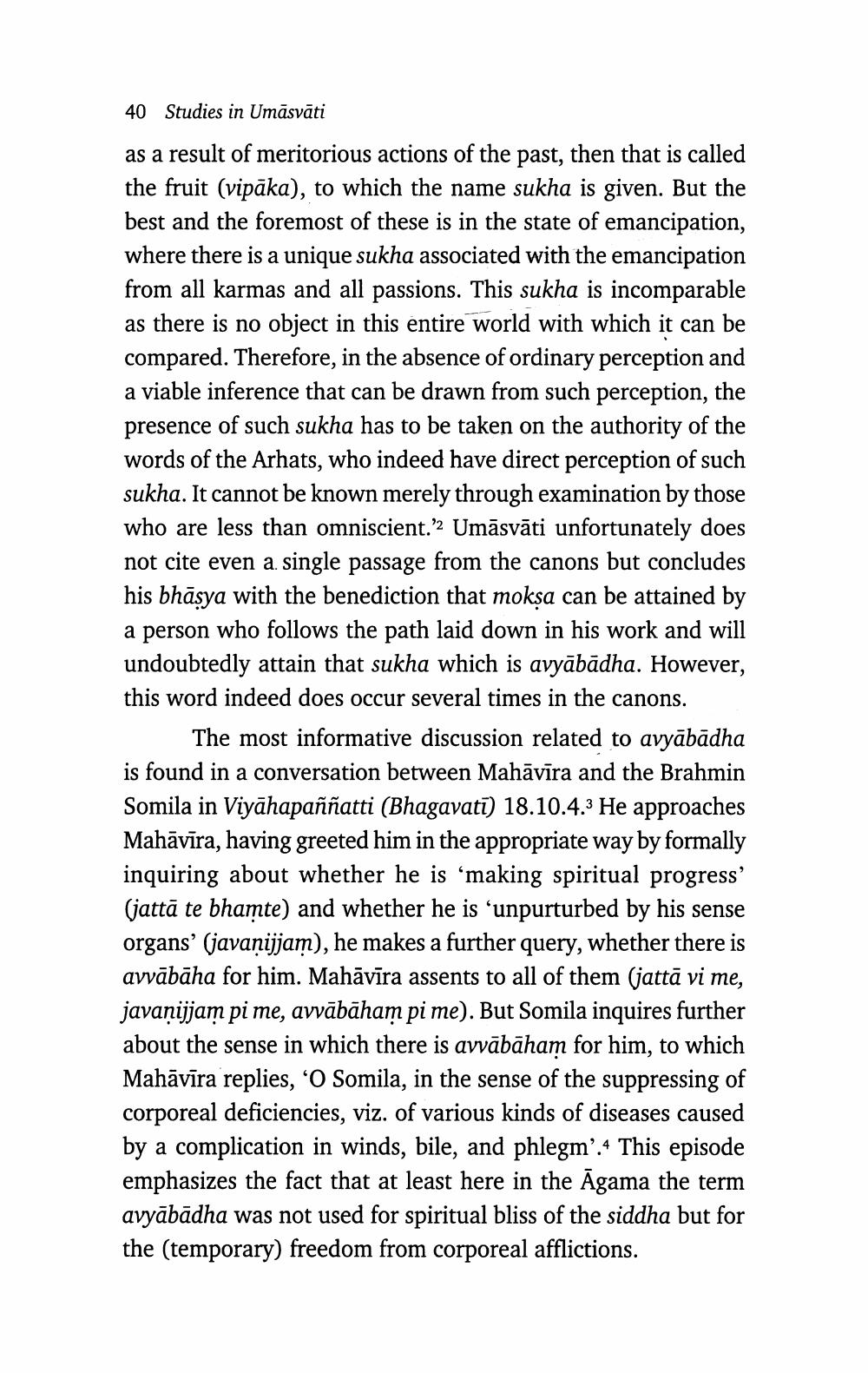________________
40 Studies in Umāsvāti as a result of meritorious actions of the past, then that is called the fruit (vipāka), to which the name sukha is given. But the best and the foremost of these is in the state of emancipation, where there is a unique sukha associated with the emancipation from all karmas and all passions. This sukha is incomparable as there is no object in this entire world with which it can be compared. Therefore, in the absence of ordinary perception and a viable inference that can be drawn from such perception, the presence of such sukha has to be taken on the authority of the words of the Arhats, who indeed have direct perception of such sukha. It cannot be known merely through examination by those who are less than omniscient.”2 Umāsvāti unfortunately does not cite even a single passage from the canons but concludes his bhāsya with the benediction that mokṣa can be attained by a person who follows the path laid down in his work and will undoubtedly attain that sukha which is avyābādha. However, this word indeed does occur several times in the canons.
The most informative discussion related to avyābādha is found in a conversation between Mahāvīra and the Brahmin Somila in Viyāhapaññatti (Bhagavatī) 18.10.4.3 He approaches Mahāvīra, having greeted him in the appropriate way by formally inquiring about whether he is ‘making spiritual progress' (jattā te bhamte) and whether he is ‘unpurturbed by his sense organs' (javanijjam), he makes a further query, whether there is avvābāha for him. Mahāvīra assents to all of them (jattā vi me, javaņijjam pi me, avvābāham pi me). But Somila inquires further about the sense in which there is avvābāham for him, to which Mahāvīra replies, 'O Somila, in the sense of the suppressing of corporeal deficiencies, viz. of various kinds of diseases caused by a complication in winds, bile, and phlegm'.4 This episode emphasizes the fact that at least here in the Agama the term avyābādha was not used for spiritual bliss of the siddha but for the (temporary) freedom from corporeal afflictions.




